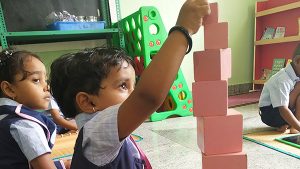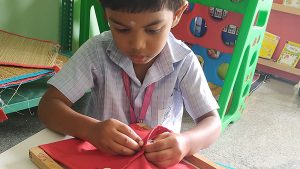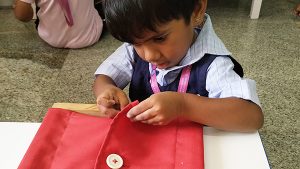Welcome to Montessori education @ Omega
Lalaji Memorial Omega International school strives to provide opportunities for young children to develop holistically. We nurture this in our youngest children through Montessori Education which provides the foundation for a lifetime.
We provide safe learning environments for children, with activities to support their learning and development. Our teachers are dedicated and trained by the Association of Montessori Internationale (AMI), which is the authority that empowers teachers and communities through the educational approach of Dr. Maria Montessori to help children develop their true potential and make a difference in the world.
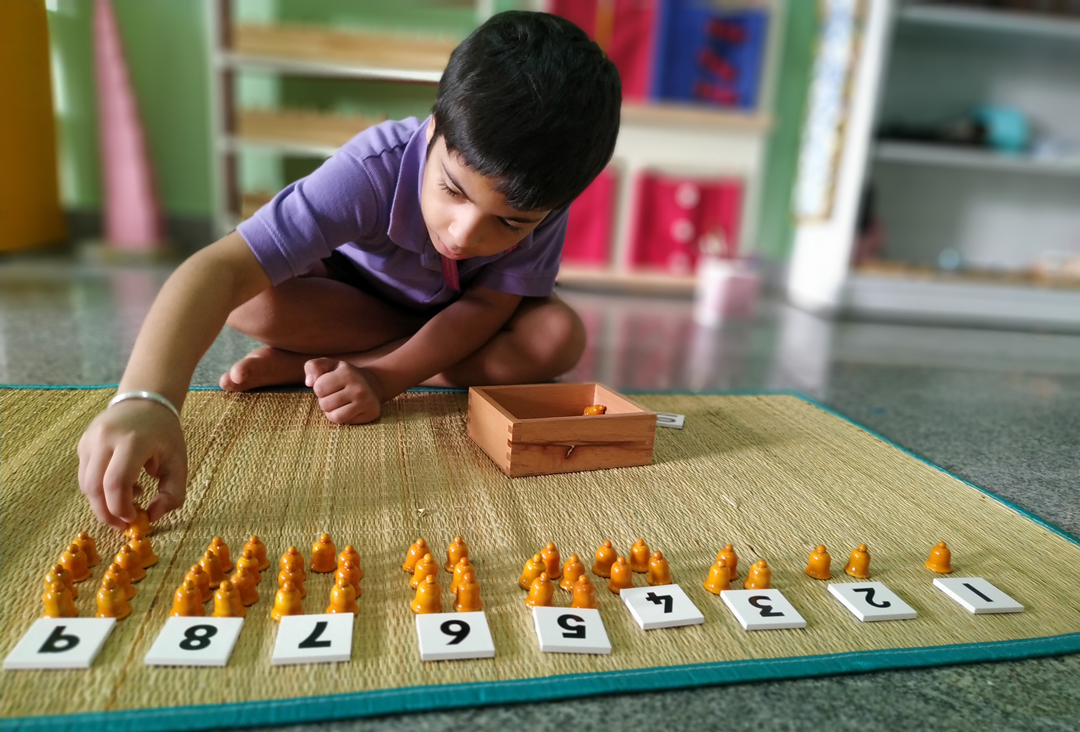
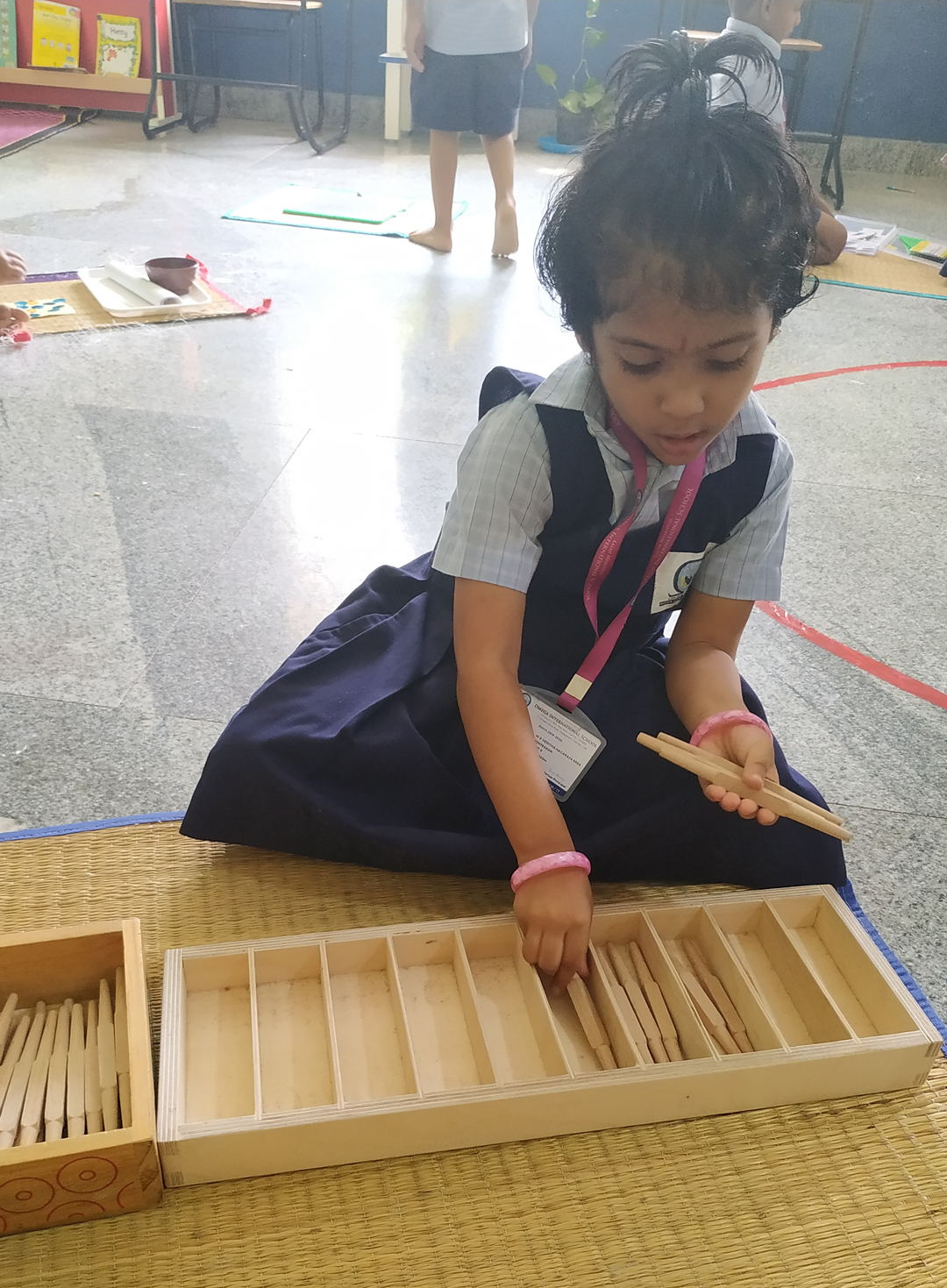
Why Montessori education?
Montessori education is based on the studies of Dr. Maria Montessori, a medical doctor, a teacher, a philosopher and an anthropologist who studied children’s developmental needs from birth to maturity. Her philosophy strives to support children’s natural love for learning and to become caring individuals.
Montessori approach is based on self-directed activity, offering hands on learning experiences. In Montessori classrooms, children make creative choices in their learning while the environment and the qualified teachers offer appropriate activities to guide the child development process.
Omega’s beautiful Montessori environments are designed to meet the needs of the children aged 2 1/2 to 6 years. Our spacious and thoughtfully arranged environments enable children to move freely, to develop control of their movements, as well as to work independently, and cooperatively to support their social development.
Our teachers help children pursue their interests to build sound academic and life skills. They ensure that the environment is joyful and hands on to develop an active and lifelong learner.
The Montessori Principles:
Hands on Learning
Montessori activities are specifically designed for the developmental needs of children. They are organised under five different areas: Practical Life, Sensorial, Math, Language, and Culture. The materials are arranged beautifully in order, on short shelves so that they are attractive and freely accessible to children.
This environment gives children opportunities and experiences to learn and grow. The materials are laid out progressively, offering increasing levels of challenges and building the children’s understanding of different concepts. Children are encouraged to maintain their order, care for and respect the environment.
Holistic Learning
In Montessori, children learn practical life skills. These practical life activities help children to perceive things clearly, to face challenges and to solve problems. They gain control over their movements, build concentration, leading to physical and psychological independence.
Sensorial materials are very attractive and help the children to develop their intellectual skills, helping children to discriminate and perceive differences. They help children to predict and identify fine differences in their surroundings. They become good observers, leading to awareness and appreciation of their surroundings. They enhance the child’s mathematical mind and indirectly prepares children for writing.
Choice & Interest
Children have the freedom to choose their activities guided by their interests and the teachers’ knowledge. Children learn better when they are curious and have interest (like an adult).
In a prepared Montessori environment children set their own goals and follow their natural timetable. If allowed to carry out activities that meet their developmental needs, the children feel joy and satisfaction. They do not expect appreciation or rewards from the teachers.
Mixed age group (2 1/2 – 6 years)
Children are placed in a mixed aged community because they work and learn better when they are in a collaborative environment. Younger children observe older children and they are motivated to do what older children are doing and to learn. Older children have an opportunity to be leaders to guide the little ones which reinforces their own understanding and learning.
Adult interaction
A teacher doesn’t instruct the children but instead gives each child lessons appropriate to him/her. She observes the children in action and when appropriate, interacts in such a way that guides the child towards their natural path of learning.
Freedom within Limits
In a Montessori environment, children experience various forms of freedom. They are guided from the beginning to use their freedom in a constructive, useful way. Freedom is offered within clear limits and expectations.
